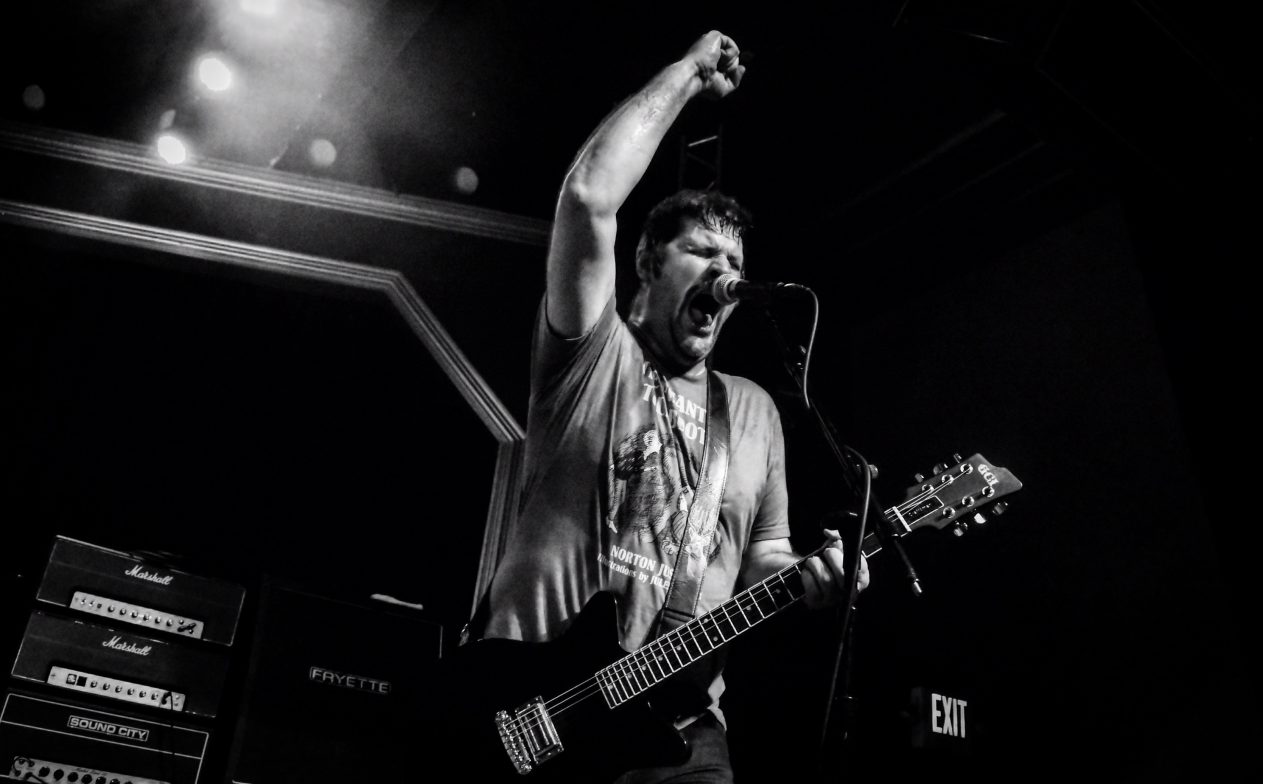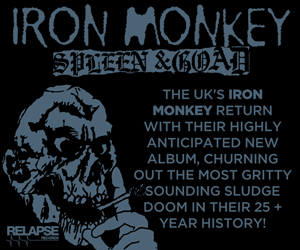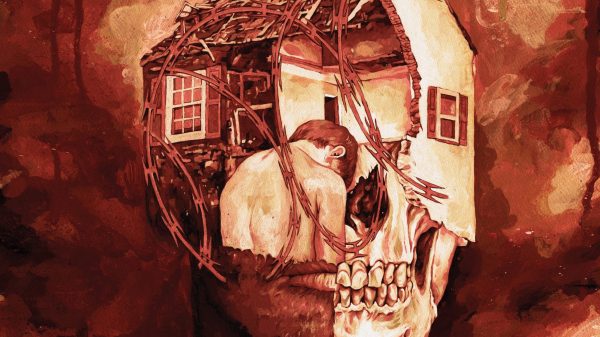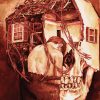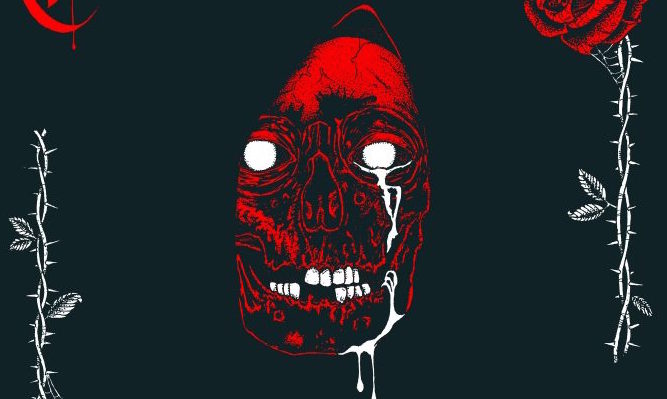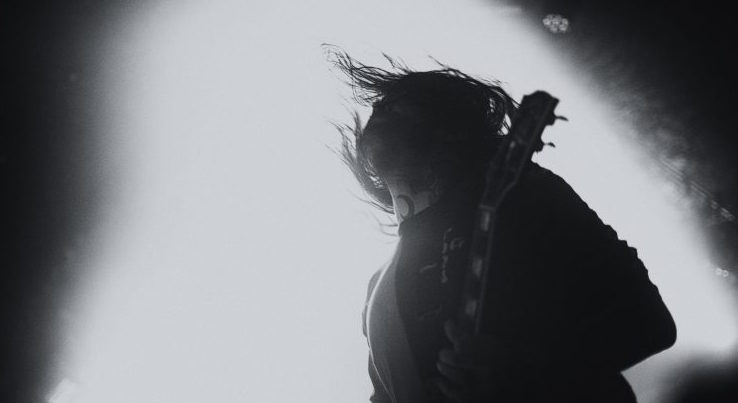Kurt Ballou is an American musician and producer based in Massachusetts, best known as the guitarist for the band Converge and for his prolific recording and production work at his own GodCity Studio. Two weeks ago I called him when he was on tour with Converge on the West Coast. We talk about The Dusk in Us (last Converge album), his carrier and the secret to creating the right sound for the right band.
You are on tour with Converge on the West coast. How is it going?
It has been great so far. All the shows have been sold out. We got a chance to play with some great bands, with some great friends of ours, with Sumac and Cult Leader, so that’s been really fun. Seeing old friends, eating good food and just generally having a great tour.
Your last album, The Dusk in Us was released in November after five years of All We Love We Leave Behind. Do you think it is different from your previous works, and in what way?
Every album is different. We are five years older, different people, we have morphed as human beings, so there’s always a natural change to the musical output as we have done more things and are influenced by other things and just the desire to create something new. It’s a different approach to some songwriting. It’s tough to quantify what is different about it. I think that’s something best left to the people listening to the album to say what’s different. For me, what’s more important is what’s the same, and what’s the same is that I have the chance to make music with three of my best friends in the world and we are a band, we are like a group of brothers out there doing this thing together and we all feel really fortunate we’ve been able to keep doing that and to keep being creative. That’s really exciting to me.
The writing process for The Dusk in Us changed your way of creating your songs?
Each song is different, and I think that we are very good at capitalizing on whatever situation we have to be in and finding a way to be creative with that, and the same is true with songwriting. Sometimes songs start with a different person’s idea than usual. I think we are really good at finding inspiration in all different places and figuring out a way to turn that into a song. It’s tough to say. There’s no strategy going into an album as to how we’re going to create it, we just sort of get together and see where the inspiration is and then follow that and try to make the best songs out of whatever inspiration we have.
![]()
Your first album was released in 1994. More than twenty years ago. Do you think anything has changed, musically speaking, in your way of being a musician?
I think that the way we grew up playing music and the bands that we listened to, the ethos of the scene we were in at the time has very much influenced everything that we have done as a band. It is certainly a much different musical landscape now than it was back then with regard to the acceptance of the type of music that we play, the evolution of that type of music and our ability to play that music on the level that we’re able to play it now. The bands that were the equivalent of what Converge is today back in 1994, those bands didn’t have nearly the same opportunities that Converge has today and it’s by nature of the changing landscape of music.
Like you said, you have been playing together for over twenty years. What has inspired you to continue playing together?
I get to play with three of my best friends in the world and we have opportunities to be creative together and it’s still really fun. It’s challenging but still really fun and rewarding. It’s friendship and it’s the excitement of creativity. I have creative partners that I respect and trust, and so having that makes it really worthwhile to pursue those creative endeavors.
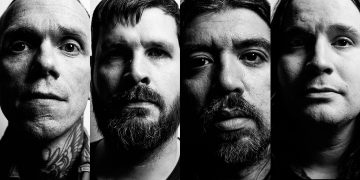
Converge / ph: Deathwish.com
You are also an important figure in the world of recording. How does being a musician influence your career as a sound engineer?
I think they are very related. They are two sides of the same coin. I think each engineer finds a way to draw from their experience, whether it’s as a fan or as a listener or as a musician or as a technician, to find their own path in recording bands. For me, I think I am able to bond with the bands that I’m recording over what it takes to be in a band because it’s something that I do as well, so I think I have an immediate connection with most of the bands that I record through having done all of the stuff that they are doing and everything that it takes to be in a band and not just playing my instrument but all of the organization, the interpersonal stuff that it takes to be in a band.
What do you like about being a musician, and what do you like about being a sound engineer?
The same thing. I think for me being creative with my day is the most important thing to me and whether that is recording a band or writing a song or designing a guitar pedal or designing a studio or whatever it happens to be, being creative is the most important thing to me.

Godcitystudio.com
You work with a lot of bands. Do you think the music scene has changed since the 90s, when you started?
Yeah, for sure. It’s very different. When we started, there was no internet and there was, the scenes of music were very regional, very localized. Now with free access to information, both in terms of people being able to stream music instantly [inaudible] the way in which music is advertised and written about. It’s much more global. So now, I think people feel as though their musical community is divided more by genre than it is by geography than when we were coming up. It’s very geographical.
Recently I talked to Steve Albini and he told me he prefers an analog approach to recording. What do you think about that in the era of technology?
I think technology’s great. It’s our choice whether we want to use or abuse that technology. A lot of recording is wonderful. I think there’s also a lot of things that digital is really good at that’s not possible in analog. I am a fan of digital recording. I tend to record digitally and then mix most of it in analog equipment, but I enjoy digital stuff. I think that Steve is very talented but also a very opinionated person and maybe a bit set in his ways, but that’s okay, I think he has an approach that works really well for him. It’s not very practical in the current musical landscape. If a band desires that and wants that aesthetic and also wants that type of workflow and can afford to do it, then that’s great. I certainly made a lot of analog records that turned out well. My preference these days is for digital tracking. I find that I can do more with a band’s budget when tracking digitally.
Unfortunately, a lot of bands just aren’t well rehearsed enough to make the record that they want to make in the analog domain, unfortunately. You’ll notice a lot of, he has the privilege of recording a lot of really awesome bands, and awesome bands will sound good no matter how you record them. I’m not trying to discount his abilities, because he’s an amazing engineer. Whenever I’m recording an amazing band, I just try to stay out of their way and let them do what they can. But sometimes it’s a fun challenge to see how good you can make a not-so-amazing band sound. The cream does rise to the top. I enjoy using whatever tools are at my disposal to make the best record that I can. “Best” is a very subjective thing and for me the thing that’s really compelling about music is the humanity within it.
I think that’s what Steve is probably getting at when he’s talking about sticking to an analog approach is not manipulating the music in a way that is inhuman, and I think there’s a lot of validity to that type of approach. Particularly in pop music, and modern death metal and metal core, it’s very inhuman and the recording techniques become more like data entry, like using Microsoft Excel and using some sort of recording software. It’s fine if that’s the result you’re going for. It’s not music that speaks to me. The digital recording and processing that I do, I approach it from a very human perspective, where I’m trying to get the humanity of the song and the performance across in a way that’s not manipulated to be inhuman.
What’s the secret to creating the right sound for the right band?
Just listening. It’s respecting that each person, each musician, each band is a unique thing and listening to them, both their words and their opinions, what they are and what they want, and listening to their music and finding what is great about it and trying to find a way to make that greatness come across in the recording. Referencing the previous question, I think what happens a lot with modern production techniques and that loss of that humanity that happens a lot of modern production techniques the bands within genres become a lot more interchangeable, so trying to complement the uniqueness of each musician with a unique recording approach and unique equipment, I find, to service the sound of the recording a lot more than a lot of the modern production techniques.
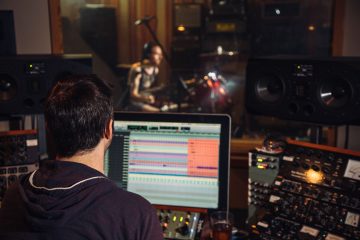
Godcitystudio.com
What’s your favorite record that you have worked on?
That’s tough to say. I don’t have one favorite; I don’t even have ten favorites. I think the thing that I love about it is the chance that every day I go to work I have an opportunity to be creative and work with people that I enjoy spending time with and admire as musicians and the fact that I can do that day after day is the thing that is most special to me.
You recorded the last Converge album. Do you think there is a difference between recording someone else’s work and your own and maybe there is more pressure?
Yeah, there is. I’ve recorded many Converge albums, so I’m used to it now, but certainly the first time I did it I felt a huge amount of pressure. I don’t feel as much pressure now but yeah, the stakes do feel higher. And it’s also a bit harder because when I’m recording another band, then I have other people to keep me honest, other people to bounce my ideas off of, other people that tell me no, that’s not good enough, like, you need to do this better, but with a Converge album, there’s also a lot of time that I spend by myself in the studio where I have to be my own critic as well as the musician, so that can be a bit challenging. It can be really isolating.
I think the thing that happens to me, and to a lot of both musicians and engineers is, when it comes time to make an album, that’s like, you can’t put things off any longer, like when you’re writing songs or playing live or something like that, you can have things where there are mistakes and as long as the energy’s there it‘s fine, it’s good but like, when it comes time to make an album everything’s under a microscope and it’s forever.
So, anything mistake, the tone doesn’t sound as good as you want, or the tempo is wrong or any kind of little thing on the recording that you don’t like, it’s right there, so you’re face to face with yourself, and making music is really emotional for me and I think for a lot of people it’s a constant struggle with my lack of ability or lack of ability to make things sound the way I want or as good as I want, and I can put off those feelings when I’m writing songs and I can put off those feelings when I’m playing live, but when I’m recording, it’s really emotional for me because all of my own inadequacies and inabilities rise to the top and are right there in my face and fighting through that to get the record completed is always really challenging to me.
What should a band expect when they work with you at the GodCity Studio?
I expect to deliver them an enjoyable experience is that is representative of who they are, the record they want to make but also the band that they are at the time. I’m not the type of engineer or producer who takes the reins fully. There are definitely producers out there who treat the band as tools that they use in making a record. I don’t want to do that. I want to make the band’s record. I want the final output to be the thing that they want to create. Obviously, my stamp is going to be on it, but that’s not why I do it. I do it because I enjoy the voyeuristic nature of recording bands, seeing how other bands work and getting to watch the process of building a song. I find that inspirational and I learn a lot from it as a musician too. I just hope that everybody leaves happy. More often then not, bands that I record come back and work with me again, so I think I’m doing what I’m setting out to do.
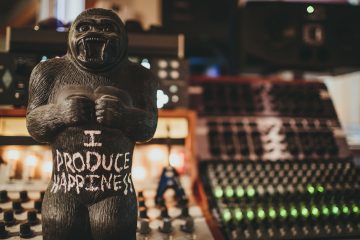
Godcitystudio.com
What are you looking for when you choose your instrumentation for recordings?
A lot of it just comes from noodling around, playing my CD and messing around with equipment and at some point, I hear a sound and the sound just grabs my attention and then that eventually turns into a song. Sometimes the song comes first and I have to find the sound that’s appropriate for the song. Other times the sound comes first and then that leads to a song.
Is your recording instrumentation the same when you record a band, do you think in advance about what you will use, or is it in the moment?
It’s generally in the moment. Last weekend I was recording a band and I was getting guitar sounds. What I did was, I got out maybe eight guitar amps and line them all up, plugged it into the next amp and just went down the line. I just watched the band to see what their reactions were and see what things made them excited. Then based on what I was seeing and hearing from them, I had suggestions for things to tweak or maybe some suggestions for other things to try, and eventually we came upon a sound that we were really happy with, but it was a process. One thing that I never, ever do, which is something that bands seem want to do but I never ever say, like, I love the sound of blah-blah-blah on blah-blah-blah record and so I’m going to use that equipment, because that never, ever works.
Like, any time a band comes in and says, well, so-and-so used this amp, so we need to use that amp. That never works. Every musician is different, everybody plays different, everybody has a different way they play their instrument, just different stuff, and it never works to try to mimic what somebody else. I just try to listen to what’s happening in the room and make that the best that it can be rather than trying to chase the sound from something else.
Actually, it’s funny because I know a lot of bands that when they go to a recording studio, they want “the Kurt Ballou sound”. Everyone notices what you are doing and appreciates your work.
They are probably not using all the same equipment that I use. They might be inspired by a feeling and if that helps them find the sound, then that’s really useful. I use reference mixes sometimes where when I’m recording a band or mixing a band, like I’ll put on somebody else’s album just to calibrate my ears. I think that’s really valuable. If people use my recordings do that, to help calibrate their ears, I think that’s helpful. Nobody’s going to make a record that sounds like me, just like I’m not going to be able to make a record that sounds like anybody else.
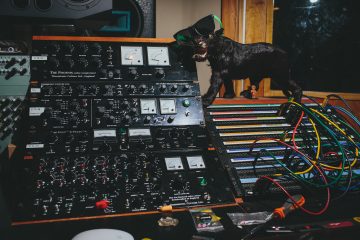
Godcitystudio.com
Looking back at your career as a sound engineer or musician, would you change anything if you could go back?
It’s tough to say, because I’m happy with where I’m at right now. So if I were to change something, would I have arrived at the point I’m at now? I’ve certainly spent a ton of money on equipment that I shouldn’t have, and there are things about the design of my studio that I think I could have done better and stuff like that, but it’s not something that I can spend time thinking about because I’m happy and really thankful for where I’m at this point of my career.
What bands have you been listening to lately? Are there any new bands that you like?
I honestly don’t listen to a lot of music outside of my studio. I’m recording bands for like ten hours a day, every day, and I have been doing this for twenty years, so it’s tough for me to listen to music the way I used to listen to music before I was doing this. I only have so much emotional energy to devote to music and I want that energy devoted to the music that I’m working on and not casual listening, so I’m more likely to listen to like a podcast or watch a movie or spend time with my family when I have down time.
You have taught some master classes about recording. Do you have any tips for young sound engineers starting to approach this work?
The most important thing is to listen. When it comes to setting up the studio, setting up a good listening environment, acoustics and speakers so you can hear what you are doing, well, I think that’s probably more important than any time of equipment, and also in terms of your skill as an engineer, listening to your clients, both what they want, what they think they want and what they actually want, listen to the sounds they are creating, listen to other music that your clients like and find out what it is about that music that they like, find out what it is about the music they are making that’s great, and do your best to optimize all that stuff. Listening is the most important thing for anybody involved in music.
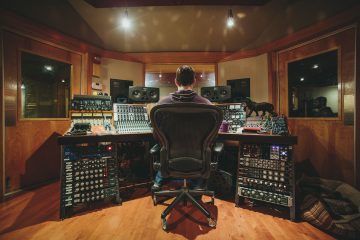
Godcitystudio.com

